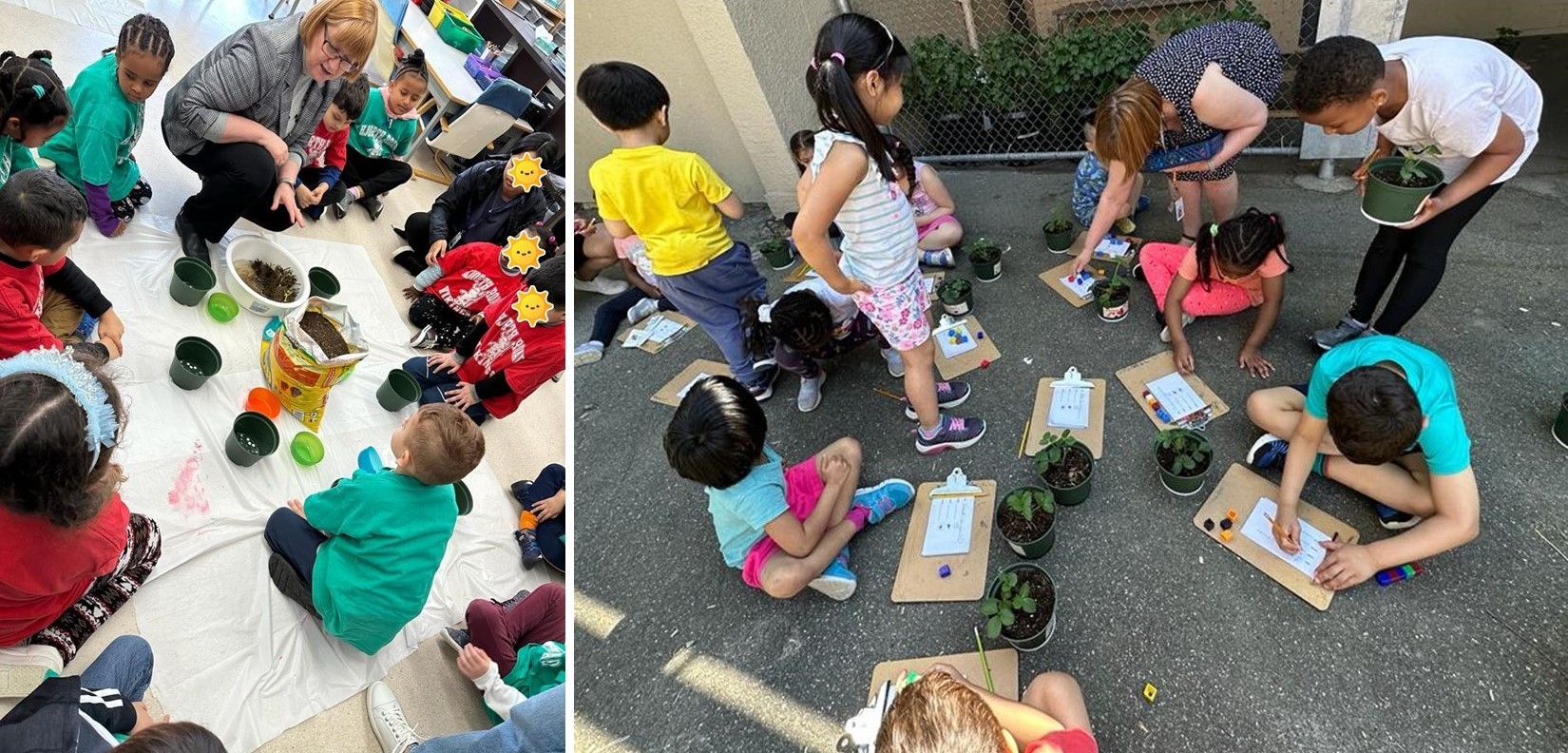
Teacher Champion - Iryna Zahara
In this issue of our BCAITC Teacher Champion series, we profile BC teacher Iryna Zahara. Discover her passion for educating students about BC agriculture, food, and the environment.
What school do you teach? A: I teach at James Ardiel Elementary School in Surrey.
What grade(s) do you teach? A: I teach grade 1.

How and when did you first learn about BCAITC? A: I learned about BC Agriculture in The Classroom (BCAITC) Foundation a few years ago from our school’s principal who participated in the program when she was a classroom teacher.
How long have you been teaching students about BC agriculture and food? A: I have been teaching about agriculture and food for many years, but for the last few years, I have been doing it through programs and resources offered by BCAITC.

What are the most important things that you want your students to learn about BC agriculture and food? A: I want them to learn about the importance of agriculture in our daily lives. I also want my students to appreciate the time and labour that is put into the food, that appears on their dinner table. I hope that will make them think before throwing food in the garbage and help to reduce food waste.
BCAITC has over 500 free downloadable resources including lesson plans, activities, videos, recipes, and more! What is your favourite BCAITC resource and why? A: I like Fresh Stories because I can connect them to the class agricultural project, themes, or field trips (pumpkins, potatoes, strawberries etc). However, my “go-to” resource is Teacher’s Guides for the respective program. They really help to start the project, especially if you have never done it before, and I can find answers to any questions I have during the growing process.

What is your favourite BCAITC program and why? A: My favourite program is Spuds in Tubs. It is a lot of fun for students to get their hands dirty while planting or harvesting. I really enjoy watching them eating potatoes that they planted, grew, harvested, washed, and cooked, making comments like “These are the best potatoes I ever had". In addition, this program can be integrated into other academic subjects: Math (estimating, measuring, counting), Language Arts (writing stories, learning new words), Social Studies (history of growing potatoes in BC, Indigenous People agriculture history) etc. There are so many things we can do with this program!
Describe an agriculture or food-based project/program you have implemented in your classroom/school recently. A: Last year my students and I participated in the BCAITC program “Common Grounds. Strawberry Project”. We grew cultivated and wild strawberries in our classroom. It is a very new program for me, and I was learning as I was doing it. There were a few challenges and mishaps, but we had a lot of fun planting and growing strawberries and learning interesting facts about them. At the end of the school year, students took their strawberry plants home and promised to keep growing them.

Do you have any advice for other educators on how to integrate agriculture and food education into their curriculum? A: Don’t be afraid to try new things, even if you have no idea how to do it. If you enroll in the BCAITC program, they will provide all materials and step-by-step instructions. Just start, and you will learn as you go, and every year you will get better, and you will find your own ideas or adaptations implemented in the program. I think it’s important to look at the program as an integrated part of the curriculum, not as a separate program. It is great for cross-curriculum teaching.
About the Teacher Champion Series: This monthly BCAITC series features BC teachers and school staff who are passionate about providing agriculture and food education to K-12 students. For more information, contact BCAITC Communications Coordinator, communications@aitc.ca.
